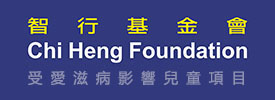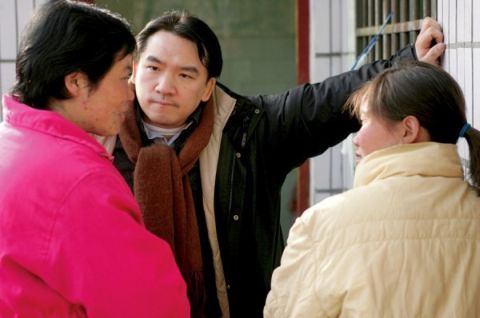|
(2011/09 harvardmagazine.com) |
|
|
| by Marilyn Chase September-October 2011ON A RUTTED dirt road in rural Henan Province, Chung To, A.M. ’91, entered a destitute farmhouse. Before a dimly lit family altar with images of the Buddha, Mao, and departed kin, two grandparents nudged their granddaughter to greet the visitor. To admired the top marks in the girl’s report card, hung on the wall, and asked about her plans for the future. “I don’t think about it,” said the 12-year-old in a small voice. After her father died of AIDS, her mother remarried, then moved away. Left poor and marked by the stigma of AIDS, the girl had little to hope for.In China, she’s one of many thousands of children born of Chinese farmers infected by HIV-tainted blood products, effectively orphaned by the infamous “plasma economy” of the 1980s and 1990s. Almost 58,000 Chinese—nearly 8 percent of the country’s official estimate of 740,000 people living with HIV/AIDS in 2009—were infected through contaminated blood, spread largely by roving blood dealers. The rural poor, normally reluctant to give away their life’s energy source, were assured they could make money by selling their plasma because once that was siphoned off, the red cells were re-infused into donors’ bodies. But pooling of cells from infected donors transmitted the virus in epidemic proportions. Although officially halted by the government in the mid 1990s, the plasma economy has deeply affected the next generation.By visiting scores of village s throughout China’s rural heartland, To has found and helped about 12,000 such orphans through his Chi Heng Foundation (the Chinese phrase means “wisdom in action”). A Hong Kong-born investment banker initially based on Wall Street, To accepted a job transfer from the Swiss banking and financial services firm UBS in 1995 because he wanted to experience living and working in his native city (he has dual Hong Kong and U.S. citizenship). He had quietly come out as gay in the 1980s and, once he returned to Hong Kong, he was so moved by the vulnerability of Chinese men at risk of HIV/AIDS that he began volunteering as an AIDS-prevention educator in nightclubs and on help hotlines. In 1998, he launched the Chi Heng Foundation to help fight discrimination and the spread of HIV/AIDS; by 2001 he had abandoned his banking career to work full-time at the nonprofit. When he learned about the orphaned children during a trip through the countryside, he reoriented and expanded Chi Heng in 2002 to focus on helping them. Chi Heng (chir-hung) is now the longest-running private program for educating AIDS orphans in China. Headquartered in Hong Kong, the foundation also has offices in Beijing, Shanghai, Guangzhou, and in Henan and Anhui provinces. To travels frequently in China and also abroad, on trips to meet donors. Sources of support range from the Chi Heng Foundation Canada, based in Toronto, which conducts fundraising in North America, to gifts of medicine from the William Jefferson Clinton Foundation, to donations from individuals and proceeds from special events and social enterprises that employ HIV-affected individuals. With a staff of 40, several hundred volunteers (including many former scholarship beneficiaries), and an annual budget of $1.8 million, Chi Heng offers tuition and school aid from primary grades through college, plus psychosocial support, art therapy, summer camps, and vocational training. To relies on a network of like-minded health and welfare workers, not on government officials, for student nominations, and requires candidates to document their parents’ condition to receive aid.On his frequent visits, sponsored children greet their 44-year-old benefactor as To Laoshi (Teacher To), or To Shu Shu (Uncle To). “My children come from my work, and not from my family,” he recently told students from a village where a third of the adults are infected. He was not much older than those children when his own family migrated to the United States, seeking an American education for him and his sister, Wing. “Don’t give up,” he told the students. “If you study, we will spare no effort to support you. Knowledge is the way to change your destiny.”IN CHINA, ACTIVISTS—especially those focused on AIDS—are feared as agents of social disorder. Despite To’s primarily educational mission, local officials in Henan briefly shut down his office there in 2005. “Secret police stormed in and took away our computer and documents,” he says. They also arrested his office manager after midnight and briefly detained her, but the team refused to quit. “In mainland China, all our offices are under surveillance,” To adds. “They even asked our officers: ‘Do you mind if we tap your phone?’ I told them to say: ‘Of course not. We have nothing to hide.’” Still, he and his foundation are frequently under surveillance. Chi Heng’s mission is especially sensitive because the unpunished negligence of the plasma economy is a chapter that many would like to forget.When To first shifted his focus to the children, he drove from village to village—thousands of miles—to locate as many of them as possible. Help came from Henan physician, academic, and AIDS activist Gao Yaojie, who diagnosed early cases of AIDS in local farmers. She herself has faced harassment and house arrest, and that, To admits, triggers his own “nightmare”: the “fear of being caught, beaten up, and put in jail.” He strives to show he isn’t a troublemaker. Private by nature, he seems to have avoided jail so far through discreet diplomacy and a fierce focus on the children—downplaying his role as advocate. When speaking publicly to students from village schools, he acknowledges Chinese officials by invoking a Maoist slogan: “I want to thank the leaders for giving us the opportunity to serve the people.” He also eschews demonstrations and fiery speeches. “If I take to the barricades, I could raise awareness and I’d be the darling of the foreign media,” he explains. “But I’d help fewer people.” When traveling, he speaks softly and carries a big backpack—stuffed with rice and cooking oil for families, and scholarship checks for the students. To, who once frequented the Metropolitan Opera and dined with divas at Manhattan’s finest restaurants, now eats snacks from truck stops and totes his own thermos of tea to fuel grueling trips to some of the world’s poorest places. That cycle of fortunes won and lost—or relinquished—is a recurrent one for To, whose family fled to Hong Kong from northern China in 1937, ahead of the Japanese invasion. His grandfather’s wealth, made in railroads, was lost during the war. The family rebuilt a life in Hong Kong thanks to his grandfather’s insistence that education outlives status or riches. To, in turn, urges his students to rewrite their fate by studying hard. As a dutiful immigrant son, To put aside his high-school love of humanities to pursue a major in engineering at Columbia, but soon gravitated toward a business career. He spent his evenings and weekends working at Wall Street companies, learning about trading, and found he was exceptionally talented in math and risk analysis. During the birth of AIDS activism in New York City in the 1980s, he came out to friends but didn’t broadcast the fact. “I walked the AIDS Walk, and volunteered for campus events,” he says, but “I was more of a follower then, not a leader.” Even now, he adds, “If you asked me to be an activist and lie down in Tiananmen Square, I wouldn’t be a good one. It’s not me.” After graduating from Columbia, he returned to the humanities, enrolling in Harvard’s East Asian Studies program in 1989. That intellectual oasis, he says, enabled him to explore his cultural roots, studying modern Chinese history, Confucianism, and the Cultural Revolution. He loved the free lectures, art exhibits, and concerts on campus, and rowed for the Dudley House crew. But once he earned his master’s, he went back to the career he’d apprenticed for in New York. At Lehman Brothers, he began working hundred-hour weeks. With his earnings, he bought an apartment, collected antiques (especially vintage watches and snuff boxes), and enjoyed life in privileged and artistic circles. Moving to Hong Kong was meant to be a short-term adventure—giving him a chance to focus on international finance (when China was preparing for Britain’s handover of Hong Kong in 1997) and to return to his native land. Once there, though, he encountered tongzhi (“comrades,” a Chinese term denoting gay men) and began his AIDS-prevention work. In 1997, he says, on holiday in Tibet, he saw monks at prayer and had an epiphany: their ritual use of bell and scepter, symbolizing the union of wisdom and compassion, felt like a merging of the two halves of himself—a head for business and a heart increasingly pulled toward philanthropy. Within a year he had funded his fledgling foundation, tapping his own bank account and later pitching colleagues, alumni, and corporate donors for cash. His decision to leave banking altogether stunned his colleagues and parents. “‘Why do you do this?’” his mother asked. “I decided the world could live with one less investment banker…Chi Heng is more urgent,” he explained. Now he collects no salary, owns no car, and lives on savings and investments. DESPITE THE intermittent surveillance, official suspicion has abated somewhat as To continues to bring money for children into the villages. In 2006, he became one of the few nongovernmental organization leaders invited to address the Central Chinese Communist Party School in Beijing, where the Communist Party trains its future leaders. In his speech, he nervously proposed that NGOs could complement Beijing’s AIDS program without sparking unrest—a still-controversial concept. Chi Heng also began to draw international notice. In 2007, he won the Ramón Magsaysay Award, a Philippines-based prize for service in Asia, for his “proactive and compassionate response to AIDS in China.” In 2010, he received a BNP Paribas Award for individual philanthropy, including €50,000 to help defray his students’ growing tuition bills. In Shangcai County last year, To visited a 12-year-old boy he first met when “J” was about three. After two daughters, the boy’s parents wanted a son and sold their blood to pay the fine they knew would come. They contracted HIV and passed the virus to J. His mother soon died, and the baby’s immune system crashed. “When I first met him in 2002,” To reports, J was emaciated and covered with skin lesions—“he was dying.” Two years later, To revisited that village and was stunned to see a familiar face. Pediatric antiviral drugs from the Clinton Foundation (later supplemented by China’s government) had arrived just in time to help save J’s life, although he still has HIV. J’s survival revitalized To’s sense of mission: to offer orphans not only education, but the love and support that families would have provided. “J made me realize that you can’t give up,” To says. “So he saved my life, too.” Marilyn Chase is a journalist, author, and lecturer at the University of California at Berkeley. |
| Source: http://harvardmagazine.com/2011/09/one-less-investment-banker |




